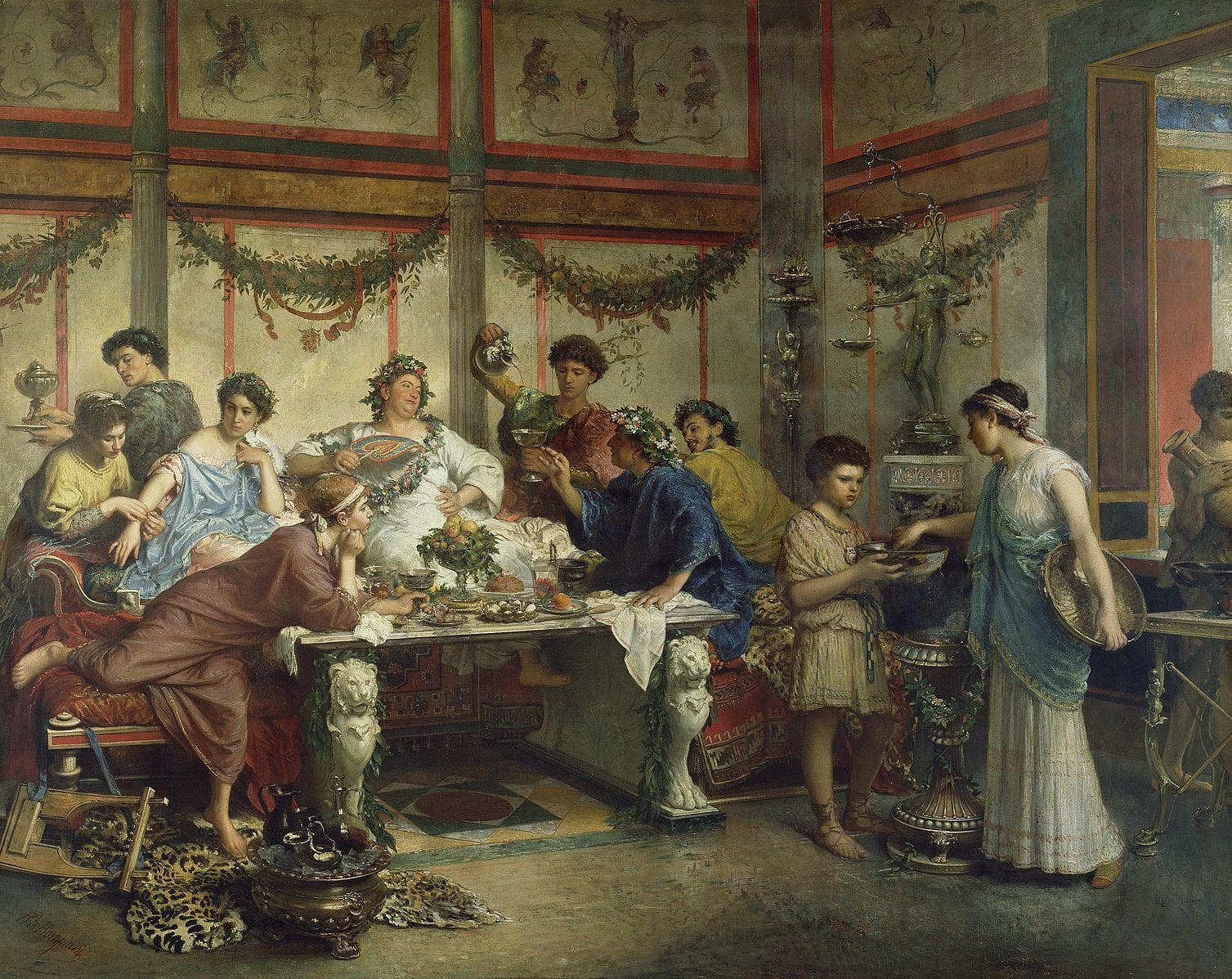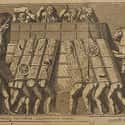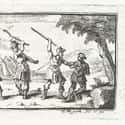-
(#1) Soldiers' Service Was Long, But Rewarding
If you wanted to join the Roman army, you were in it for the long haul. The typical Roman soldier served for a whopping 25 years, often running from the time they were 18 until they had reached their mid-40s.
However, soldiers who survived found themselves set for life. The emperor granted all retired soldiers land of their own and a lifetime pension. In times of peace, this was downright lucrative, but the retirement benefits were so good that even during war, many men didn't hesitate to sign up.
-
(#11) They Had To Clean Toilets And Baths
Roman barracks were essentially small cities, and like any city they needed daily upkeep and maintenance. Soldiers were put to the dirtiest and most mundane tasks like cleaning boots, replacing old pipes, and scrubbing the walls of the baths. The worst of these jobs was latrine duty.
On any given day, a Legionary could find himself cleaning feces out of blocked pipes and emptying full latrine pits.
-
(#13) Gaius Marius Reformed The Roman Army Into History
Much of the Roman army's legendary success wouldn't have been possible if Gaius Marius hadn't been elected consul in 107 BCE. Before his attention turned to the Roman army, it was a loosely assembled group of volunteers who had other jobs and brought their own weapons.
Under the reforms of Marius, the army became the institution that could create awe. Among other decrees, Marius allowed citizens without property to enlist, supplied soldiers with arms and armor, and made being a soldier a true career.
-
(#8) Soldiers Didn't Receive Equal Treatment
Unfortunately, if you weren't a citizen of the Roman Empire, you failed to reap all the benefits of serving. Roman citizens became legionaries, but non-citizens had to become auxiliaries. These forces weren't as well-respected, didn't earn as much pay, and instead of land and a pension, got a military diploma granting them and their offspring Roman citizenship.
Additionally, soldiers from influential families were often promoted faster, and older men ordered the younger soldiers to take the most dangerous positions on the front lines.
-
(#2) Being A Soldier Was Still Better Than Most Other Jobs
Despite all the blood and brutality, the average Roman soldier lived a better life than most in the Empire. Many civilian jobs were unstable, with pay rates negotiated for every single gig. As a soldier, you could always rely on steady pay, and you often had easy access to facilities civilians struggled to have access to.
Bakeries, hospitals, and baths were a part of most barracks, and even broke soldiers could use them for free. The land a soldier earned after retirement was incredibly attractive, because Romans were often living cramped lifestyles in the city.
-
(#3) Small Mistakes Got You Beaten, Big Mistakes Got You Killed
Soldiers judged disobedient, cowardly, or grievously incompetent by their commanders faced strict and sometimes cruel punishment. Centurions, who led the legions, carried canes used to strike soldiers to enforce their will or tighten up a sloppy march. Small mistakes could lead to beatings or prison time.
One particular centurion name Lucilius was known as "Another Here" because he beat his soldiers so severely he needed multiple canes for a single punishment. It's not very surprising that Lucilius was offed during the Pannonian Mutiny.
Larger mistakes resulted in more severe punishment, including execution. One particularly grisly punishment, decimation, meant 10% of your unit was simply, somewhat arbitrarily killed. Most infamously, general Marcus Licinius Crassus ordered 500 soldiers decimated for cowardice in the Gladiator Wars. Every group of 10 drew lots, and the unlucky soul who got the short straw was bludgeoned by their nine close comrades.
New Random Displays Display All By Ranking
About This Tool
Over the centuries, the Roman Empire conquered almost all of Europe, and generations of Romans left blood and sweat on the battlefield. From the cold swamps of Britannia to the scorching deserts of Carthage, the notorious Roman army invaded and occupied large tracts of land. This is their most glorious peak period in human civilization.
The ancient Roman army evolved from the compulsory military system to the professional military system, and technology also developed rapidly due to military needs. There are many savage and terrible things on the front lines of the brutal and chaotic war. The random tool introduces 13 details about what it was like to be on the front lines of an ancient Roman battle.
Our data comes from Ranker, If you want to participate in the ranking of items displayed on this page, please click here.
















